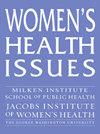生殖健康法案》实施后纽约州地区围产中心提供的堕胎服务。
IF 2.5
2区 医学
Q2 PUBLIC, ENVIRONMENTAL & OCCUPATIONAL HEALTH
引用次数: 0
摘要
目标:纽约州于 2019 年签署了《生殖健康法案》,该法案允许将任何适应症的人工流产护理时间延长至 28 周。本研究旨在描述《纽约州生殖健康法案》的实施如何影响该州区域围产中心(RPCs)的人工流产服务--这些中心是复杂妊娠的三级转诊中心,可为妊娠晚期寻求人工流产的患者提供护理。次要目标是确定扩大人工流产护理的障碍和促进因素:2023 年 1 月至 5 月,我们招募了纽约 17 家 RPC 的临床医生,包括计划生育专家、母胎医学专家和遗传咨询师。受访者完成了一项在线调查。然后,我们邀请受访者完成深度访谈。我们计算了描述性统计,以描述研究人群的特征并总结调查回复。我们使用主题分析法对定性访谈数据进行了分析:29 位受访者完成了调查,他们代表了纽约州 17 个区域协调中心中的 16 个。17 名受访者完成了访谈,他们代表了 11 家 RPC。所有机构都提供堕胎护理。29 位调查对象中有 23 位(79%)表示,在自末次月经期(LMP)起 24 周后提供任何适应症的人工流产服务存在障碍。29 个受访者中有 18 个(62%)表示在 LMP 24 周后因母体或胎儿原因提供人工流产服务存在障碍。调查结果中最常报告的障碍是工作人员的抵制和机构政策。在访谈中,受访者认为工作人员的不适、限制性的机构政策和政策不明确是障碍,同时强调机构内的倡导者和合作是扩大孕晚期人工流产服务的促进因素:纽约州的区域保健中心在提供人工流产服务方面面临障碍,尤其是在 LMP 24 周之后,尽管它们处于提供此类护理的理想位置。尽管在纽约州 24 周后堕胎是合法的,而且政策也在努力扩大堕胎服务,但这些障碍依然存在。本文章由计算机程序翻译,如有差异,请以英文原文为准。
Abortion Provision at New York State Regional Perinatal Centers Following Implementation of the Reproductive Health Act
Objective
Signed in 2019, New York State's Reproductive Health Act enabled expansion of abortion care up to 28 weeks for any indication. This study aimed to describe how implementation of the New York State Reproductive Health Act affected abortion provision among the state's regional perinatal centers (RPCs)—tertiary referral centers for complex pregnancies that may care for patients seeking abortion later in pregnancy. A secondary objective was to identify barriers to and facilitators of expanding abortion care.
Methods
From January to May 2023, we recruited clinicians from the 17 New York RPCs, including family planning specialists, maternal–fetal medicine specialists, and genetic counselors. Respondents completed an online survey. We then invited respondents to complete an in-depth interview. We calculated descriptive statistics to characterize the study population and summarize survey responses. We analyzed qualitative interview data using thematic analysis.
Results
Twenty-nine respondents completed the survey, representing 16 of 17 New York State RPCs. Seventeen respondents, representing 11 RPCs, completed an interview. All institutions provided abortion care. Twenty-three of 29 survey respondents (79%) reported barriers to providing abortion for any indication after 24 weeks from last menstrual period (LMP). Eighteen of 29 (62%) reported barriers to providing abortion after 24 weeks LMP for maternal or fetal indications. The most commonly reported barriers in the survey results were staff resistance and institutional policy. During interviews, respondents identified staff discomfort, restrictive institutional policies, and lack of clarity around policy as barriers, while highlighting advocates and collaboration within their institutions as facilitators to expansion of abortion services later in pregnancy.
Conclusions
RPCs in New York State face barriers in providing abortion, especially after 24 weeks LMP, even though they are ideally situated to provide such care. These barriers exist despite the legality of abortion after 24 weeks in New York and policy efforts to expand access to abortion.
求助全文
通过发布文献求助,成功后即可免费获取论文全文。
去求助
来源期刊

Womens Health Issues
Multiple-
CiteScore
4.50
自引率
6.20%
发文量
97
审稿时长
32 days
期刊介绍:
Women"s Health Issues (WHI) is a peer-reviewed, bimonthly, multidisciplinary journal that publishes research and review manuscripts related to women"s health care and policy. As the official journal of the Jacobs Institute of Women"s Health, it is dedicated to improving the health and health care of all women throughout the lifespan and in diverse communities. The journal seeks to inform health services researchers, health care and public health professionals, social scientists, policymakers, and others concerned with women"s health.
 求助内容:
求助内容: 应助结果提醒方式:
应助结果提醒方式:


